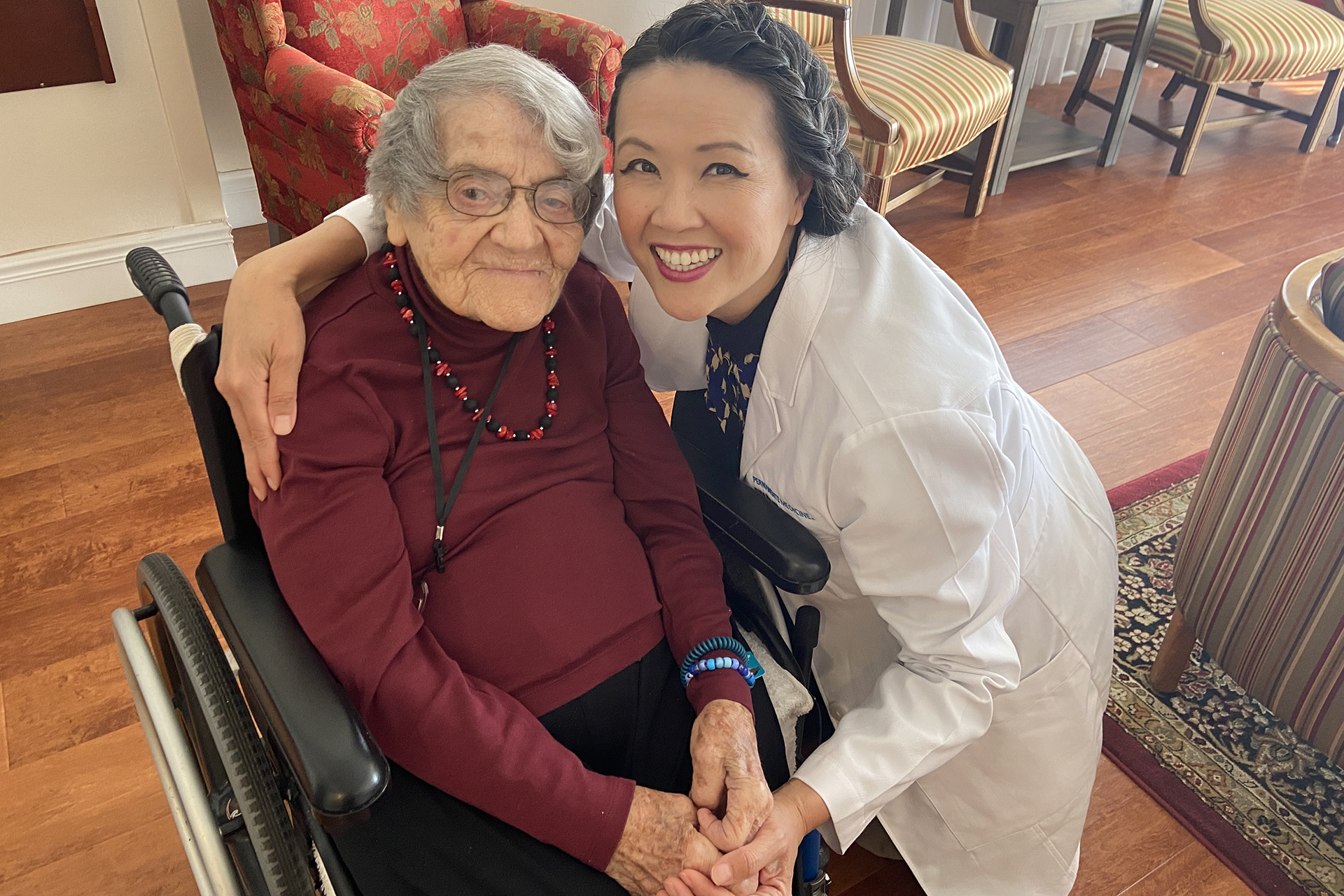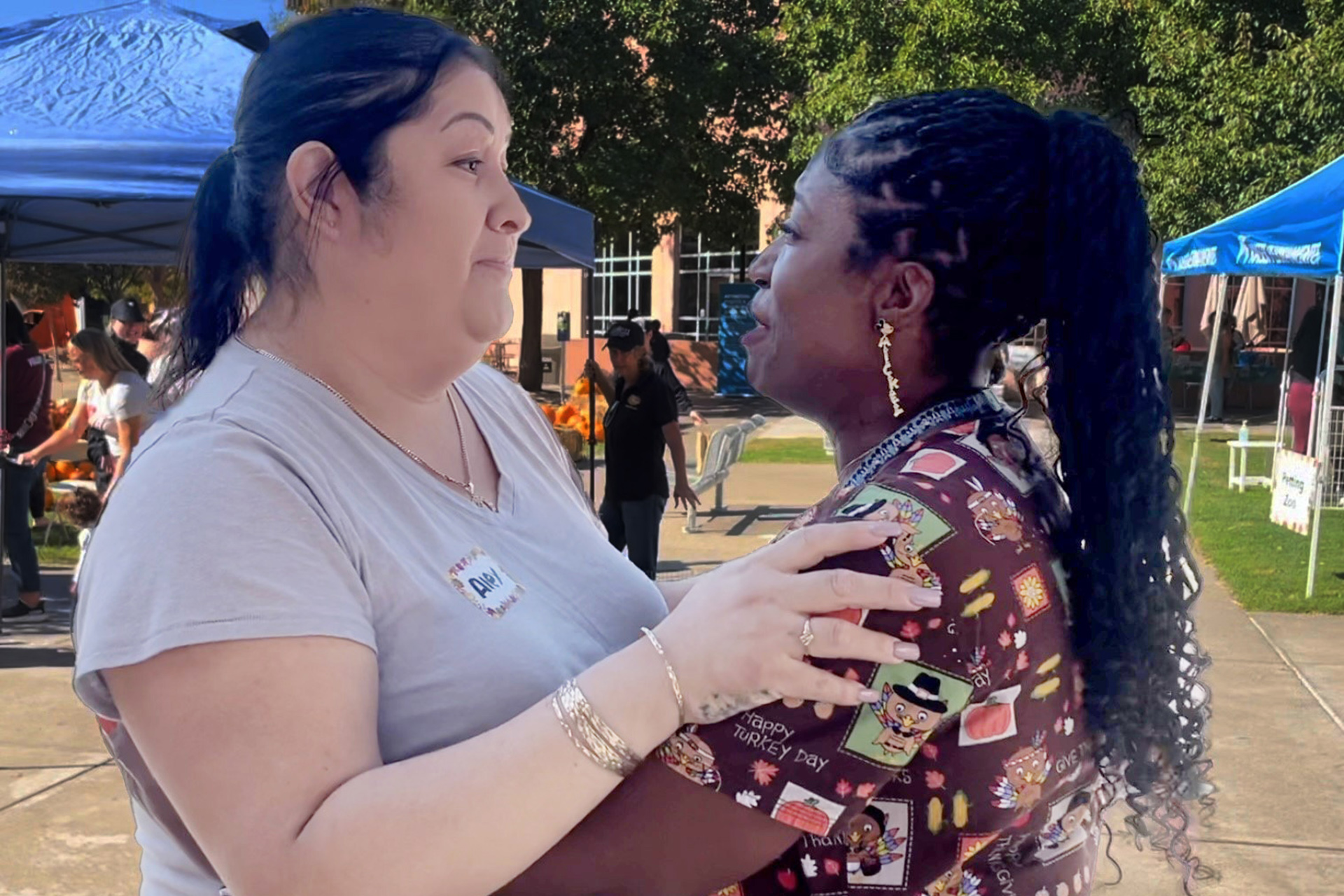Jared Randolph still recalls his feelings the first time he saw Nightmare on Puberty St. in 1991 as an eighth-grader at Sequoia Elementary School in Pleasant Hill, California.
“The show starts with a number called ‘Am I Normal?’” said Randolph, an 18-year veteran of the group who started acting in the show in 2000 and is now its program coordinator. “The taboo was lifted and all these things I had been thinking about were now being addressed in front of the whole student body.”
One goal of the show, performed by Kaiser Permanente Northern California Educational Theatre (KPET) is to help middle school students connect with a trusted adult for mental health care. Resisting negative peer pressure and normalizing the puberty experience are also integral to the show.
190301_ETP_02
Each week last year the show “bridged” an average of 9 high-risk students to immediate intervention, up from 5 a week in 2017. The show also refers students to the California Youth Crisis Line, which received 39 calls last year from students who saw it.
‘We Call Out Abuse, Depression’
“We call out abuse and say, ‘If this is happening, you need help,’” said Randolph, who like all the other actor-educators received extensive on-the-job training from doctors, psychologists, nutritionists, and other medical experts before hitting the stage. “We call out depression, and we are very direct in saying that if someone is in danger or hurting themselves, we are going to help you.”
During those conversations after the show, there is a consistent need for immediate help, such as a referral to child protective services, so the actor-educators request that a school counselor be in the room.
“In some of these cases, school staff informed us that they had previously been unaware of the child’s issue,” said Mark Punzal, also a program coordinator with the theatre.
Punzal said out of KPET’s 4 current programs, Nightmare on Puberty St. garners most of the referrals for mental health services.
“I think it’s because the content brings out a lot of these issues,” Punzal said. “We discuss puberty, adolescent development, first thoughts of sexual attraction, peer pressure, depression, and thoughts of suicide.”
Since KPET started 33 years ago, 7 million students and adults have seen its shows and attended its workshops, an average of 212,000 a year. The group currently has a staff of 35, including 20 full-time actors whose shows are seen every day in Northern California. Scripts are continuously updated by medical professionals, the actors, parents, and educators, all with the aim of providing preventive physical and mental health education and support.
Twenty-eight years after first seeing Nightmare on Puberty St. as an eighth-grader and now as a father of a 12-year-old son, Randolph said he can easily relate to the themes it highlights and to its enduring success.
“The content changes over the years, but the universal feelings around awkwardness of puberty stay the same,” Randolph said. “And the title just conveys so much.”






This Post Has 4 Comments
I have long been a fan of KP’s Educational Theater program. I think my performer self secretly wanted to be in it. What excellent proof of the benefits! Keep up the great work.
I remember when KPET performed at my kids’ elementary school in Hayward years ago (they are now both in college). It was a good performance. As a parent, I was thankful that the subject matter later opened up a dialogue among the students, their peers, and their parents/caregivers.
This looks like such a wonderful play. How can schools in the Elk Grove and Sacramento area reach out about the play through Kaiser. Also, is this ever offered to the public, like through a community center?
Visit the website to see where performances are scheduled in the coming months at:
https://etnortherncalifornia.kaiserpermanente.org/calendar/
To request one of the programs for a school or community center, submit information here: https://etnortherncalifornia.kaiserpermanente.org/book-a-program/